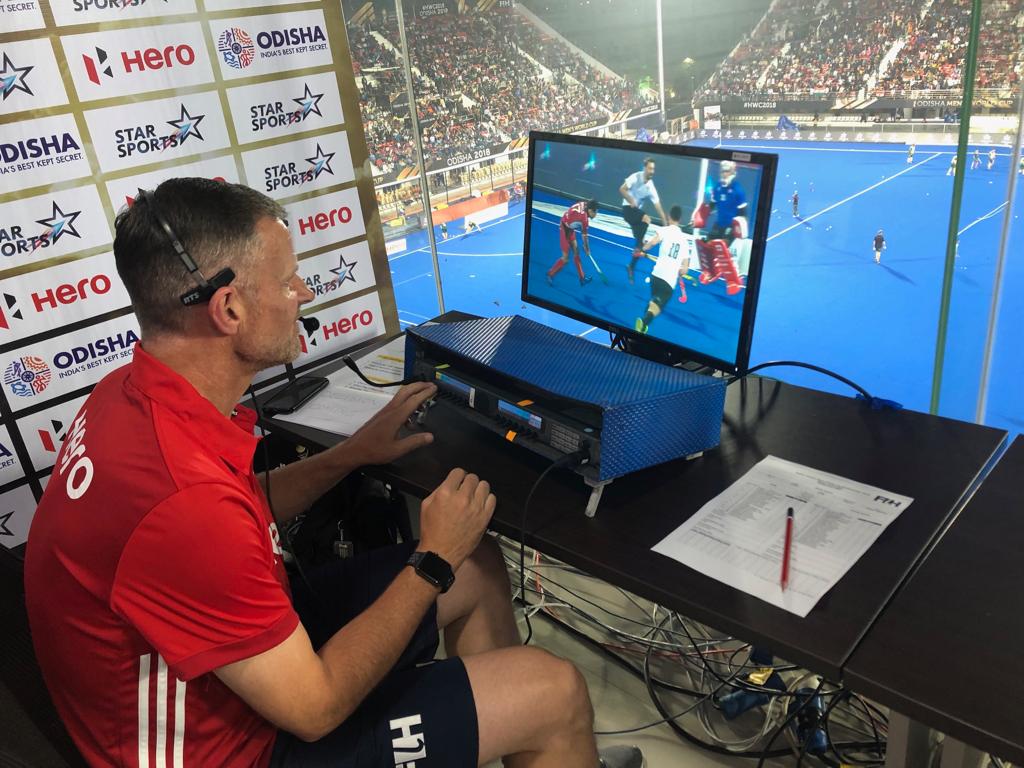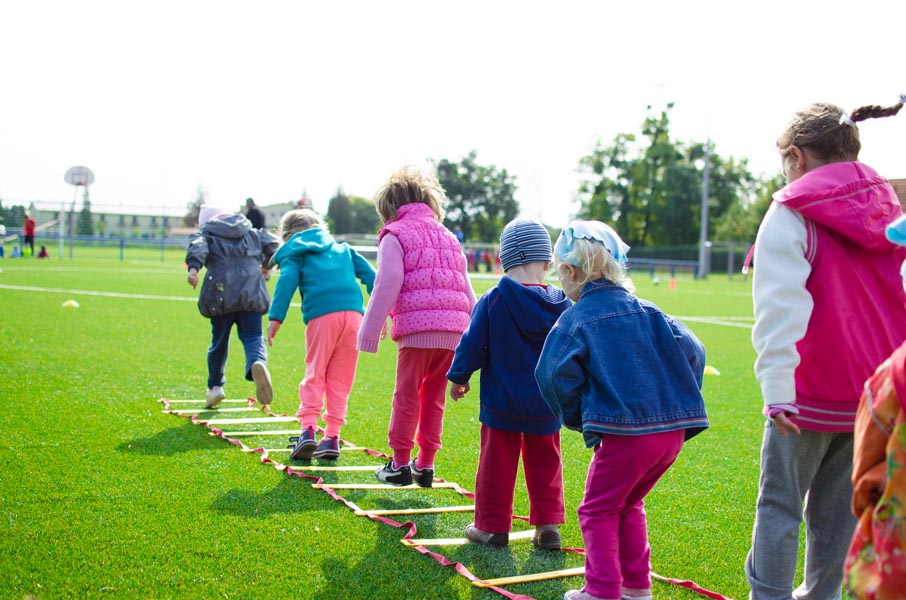Mental Fitness: Improving performance

Mental fitness – what actually is it?
Something that gets knocked all too often if you ask me!
You can know the rules back to front, you can be super fit, but if you don’t have your head sorted out then you’re limiting yourself in achieving your potential!
The mental aspect of your game is actually more important to an umpire than the physical aspect – yet, while we put a lot of emphasis on training in terms of physical fitness (which of course is also important), people don’t always realise that you need to work on your mental skills too.
We train our bodies to perform at their best, so why not train our brains? They are SKILLS. You need to practice them to improve them! You’re not ‘mental’ (haha, see what I did there?) if you think this way, but you ARE mental if you think that improving your mental fitness won’t make you a better umpire!
It’s common for a sport psychologist to work with athletes to improve their on-field performance, but less common for officials to do the same. Yet, the officials of the game are often under more pressure to perform consistently and accurately on the field – and this is true not only for top international officials, but also for umpires officiating their local games. Now, don’t get me wrong, I’m not saying that everyone has to go and work with a psych. That’s simply not achievable for many people. But that doesn’t mean you should write-off the mental aspect of your game!
Having the right tools under your belt can mean the difference between make-or-break in those high pressure situations. And knowing what those tools are can make all the difference.

I was lucky enough to work with a sports psychologist over the course of a year when I had a scholarship with the Australian Institute of Sport (AIS) for officiating. So I’m going to pass on what I learnt to you.
At the time, I was struggling to take the next step in my umpiring due to the mental side of my game. Mainly, I struggled in conflict scenarios. I had trouble knowing what to say when there was a big decision that a team didn’t agree with, or knowing how to deal with intimidating players on the field. Essentially, I was ‘freezing’ in these high-intensity moments that were flash points in my matches. And to make matters worse, I would then go and mentally beat myself up for days about these mistakes or failures in my matches.
Essentially, I needed to sort my head out in order to progress.

Working with the sports psych DRAMATICALLY improved my on-field performance. And that’s mainly due to the techniques we’re going to discuss in the post. Honestly, I cannot tell you how much of a difference it made to my umpiring. And that’s part of the journey that led to me gaining my international badge. How’s that for a bit of motivation to work on your mental game?!
For those of you doubting, or think that working on the mental aspect of your game is ‘new-age’ or ‘lame’, let me tell you this – ALL of the top umpires work on the mental skills mentioned in this post to some degree. And you actually probably do some of them already without even knowing or, more accurately, THINKING about it. But therein lies the key – actively working on these skills will see you become a better umpire.
So what actually are we talking about when we throw around the term ‘mental fitness’? What aspects do you need to work on to become the best umpire you can be?
This blog will delve into the aspects of mental fitness and sports psychology in more detail in coming posts, but first, let’s set the foundations around what exactly sports psychology encompasses, and explore some tips that you can use to improve the mental side of your umpiring.

Mental fitness: Improving performance
So, what are the mental skills we’re talking about? What are the top umpires doing that makes them so damn good at what they do? What do you need to do to take your umpiring to the next level?
Well, successful officials:
- Manage anxiety effectively
- Manage their emotions effectively
- Maintain concentration
- Use positive self-talk
- Use positive mental imagery
- Maintain a high level of self-motivation
- Set high, realistic goals
- Deal effectively with people
- Choose and maintain a positive attitude
- Know how to mentally ‘switch off’
All of these things are part of the mental aspect of your game.
Now, hopefully most of these things won’t come as too much of a surprise. I mean, most of us will either already be doing these things, or working our way towards them. But maybe you haven’t ACTIVELY thought about it before. For instance, you’ve got a goal to be a top umpire… awesome! But have you actually thought about the steps you need to take to achieve that goal? Have you stepped it out and listed ‘check points’ for yourself…? You should read this post on goal setting, how to set goals and why it’s so important! I’ll also be covering the other mental skills in more depth in up-coming posts, so keep an eye out! But on to explaining exactly what these 10 skills entail…

Dr Jack Lesyk (Ph.D., CMPC), a certified sport and performance psychologist and Director of the Ohio Center for Sport Psychology, talks us through exactly what each of these mental skills expands out to in relation how how successful officials and athletes view them:
Successful umpires:
- Attitude
- Realise that attitude is a choice.
- Choose an attitude that is predominately positive.
- View their sport as an opportunity to compete against themselves and learn from their successes and failures.
- Pursue excellence, not perfection, and realise that they, as well as their coaches, colleagues, and the players are not perfect.
- Maintain balance and perspective between their sport and the rest of their lives.
- Respect their sport, other participants, coaches, officials, and themselves.
- Motivation
- Are aware of the rewards and benefits that they expect to experience through their sports participation.
- Are able to persist through difficult tasks and difficult times, even when these rewards and benefits are not immediately forthcoming.
- Realise that many of the benefits come from their participation, not the outcome.
- Goals and Commitment
- Set long-term and short-term goals that are realistic, measurable, and time-oriented.
- Are aware of their current performance levels and are able to develop specific, detailed plans for attaining their goals.
- Are highly committed to their goals and to carrying out the daily demands of their training programs.
- People Skills
- Realise that they are part of a larger system that includes their families, friends, teammates, coaches, and others.
- When appropriate, communicate their thoughts, feelings, and needs to these people and listen to them as well.
- Have learned effective skills for dealing with conflict, difficult personalities, and other people when they are negative or oppositional.
- Self-Talk
- Maintain their self-confidence during difficult times with realistic, positive self-talk.
- Talk to themselves the way they would talk to their own best friend.
- Use self-talk to regulate thoughts, feelings and behaviours during games and tournaments.
- Use key words to keep them calm, focused and concentrated.
- Mental Imagery
- Prepare themselves for competition by imagining themselves performing well in particular scenarios.
- Create and use mental images that are detailed, specific, and realistic.
- Use imagery during competition to prepare for action and recover from errors and poor performances.

- Dealing Effectively with Anxiety
- Accept anxiety as part of sport.
- Realise that some degree of anxiety can help them perform well.
- Know how to reduce anxiety when it becomes too strong, through mental calming and relaxation, without losing their intensity.
- Dealing Effectively with Emotions
- Accept strong emotions such as excitement, anger, and disappointment as part of the sport experience, both before, during and after a match.
- Are able to use these emotions to improve, rather than interfere with high level performance.
- Concentration
- Have learned how to maintain focus and resist distractions, whether they come from the environment or from within themselves.
- Are able to regain their focus when concentration is lost.
- Have learned how to umpire in the “here-and-now”, without regard to either past or anticipated future events or decisions.
And my own addition to Jack’s 9 skills, successful umpires also know how to:
- Mentally ‘switch off’
- Have learned how to relax their brain both during and after a match.
- Are able to process mistakes, learn from them, and then move on.
- Understand the importance of mental relaxation to top-level performance.
The Performance Pyramid
Although each of these skills is important, its primary importance will occur during one of three phases: long-term development, immediate preparation for performance, and during performance itself.
Level 1 – These mental skills constitute a broad base for attaining long-term goals, learning, and sustaining daily practice. They are needed on a day-by-day basis for long periods of time, often months and years.
Level 2 – These skills are used immediately before performance to prepare for performance. They maybe used just before competition begins, or immediately before a specific performance action, such as a golf shot or a free throw in basketball.
Level 3 – These skills are used during actual performance.
The pyramid below represents the relationship of the nine skills to one another. Each of the higher levels incorporates and is based upon the skills of the preceding levels.

When can you use mental techniques?
ALL THE TIME!! Whhhoooooo!! But specifically:
- In the lead up to a tournament or game
- Pre-match on match day
- During the game
- Post game on match day
- Post game/tournament
Pre-performance techniques are all about your preparation for match day and/or a tournament. These may include techniques such as self-talk, imagery and centring.
For example, you can use imagery to help you prepare what you will do in conflict situations in order to improve your on-field performance during the tournament or match. Self-talk puts you in the confidence-zone to go out and smash your game. And centring, or mental relaxation, can help you manage your anxiety or nerves so that you can perform at your best.
Performance techniques assist you to focus on what is important during the match and this might be divided into different situations.
For instance, using key words as cues to re-focus your concentration or calm yourself during a high pressure situation. Or using ‘focused attention’ techniques to only focus on the ‘here-and-now’, particular after you’ve made a mistake or been in a high pressure situation. This will help you to limit the impact of negative thoughts on your next decisions. It’s about training your brain to push aside what happened and only focus on what is currently happening.
Post-performance techniques are designed to assist with any incidents or distractions you experienced pre-, during or post match. Setting up and discussing potential ‘what if’ situations as part of your preparation for your games will prepare you to cope with situations discussed and unexpected incidents next time. Mental imagery can help to evaluate your performance on the field and find ways to improve so that next time you are also better prepared for the situation. Self-talk and mental relaxation techniques can help pull yourself out of negative thought patterns and move on. There’s no use stewing over stuff for days! Process it and move on.

A great online resource for sport psychology tips and articles is Believe Perform if you’re interested in exploring mental fitness and sports psychology in more detail, and can’t wait for my up coming posts!
Hopefully this article has helped you to understand the basics of mental fitness, and the steps you can take to help improve your performance on the field. Keep an eye out for other mental fitness posts, like this one on goal setting, so you can take your umpiring to the next level.
If you think other people might find this useful, please share it around through social media or by using the buttons below 🙂 Sign up for the newsletter to get new posts delivered straight to your inbox, and follow me on Facebook, Instagram and Pinterest for extra tips, tricks and behind the scenes banter!
Some of the material in this post is written by Jack J. Lesyk (Ph.D., CMPC), a Certified Sport & Performance Psychologist and Director of the Ohio Center for Sport Psychology. It has been reprinted here with permission and remains copyright © 1998 Ohio Center for Sport Psychology. You can read the original post here.




You must be logged in to post a comment.